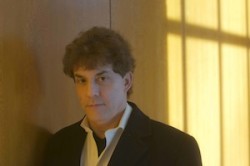The Forgotten Founding Father
by Joshua Kendall

The Forgotten Founding Father: Noah Webster's Obsession and the Creation of an American Culture
by Joshua Kendall
416 pp., Berkley
$13.42
Noah Webster was an uncredited Founding Father. Although he was not a signatory to either the Declaration of Independence or the Constitution, Webster was a Revolutionary War soldier, a confidante to George Washington, and his widely printed, prickly pieces about patriotism energized the colonies towards unification.
Born into a religious, emotionally unreachable family, Webster was burdened by low self-esteem; in adulthood his moods often bounced into periods of thunderous rage and angst, which disrupted the household, alienated friends, and dashed his career progression, intermittently.
According to Kendall, “…Webster’s mercurial temperament would frequently leave him feeling like an aggrieved outsider. … This … would spark an equally persistent desire to be heard.”
Calm would come — sometimes — from his favorite, focused occupation: words. From childhood on, he loved to think about them, and imagine their origins. This activity organized him psychologically, and provided an antidote to recurring distress.
Propelled to attain fame and recognition, Webster had difficulties discovering a pleasing occupation after his 1778 graduation from Yale. Early attempts as a lawyer failed, teaching positions were arduous, but he had a fortunate talent imparting knowledge to kids. His 1783 speller, “A Grammatical Institute of the English Language; Comprising an Early, Concise, and Systematic Method of Education, Designed for the Use of English Schools in America, in Three Parts,” was an enormous success. It delighted schoolchildren and simplified passé British spellings and pronunciations. Suddenly, at the age of 25, he was a nationally recognized writer with cachet. The textbook would have 385 editions during Webster’s lifetime, teach five generations to read, and sell 100 million copies within the next century — more than any other American book — except the Bible. It would also inaugurate the Spelling Bee.
Webster was now a phenomenon, but most of the “image” was craftily calculated. He was a natural and relentless promoter who manipulated front page advertising space from major publishers, journeyed from New Hampshire to Georgia to lecture about his literary pursuits — the modern book tour — and ingratiated Influential People into endorsing his prose with first-time-ever blurbs. He often wrote favorite reviews about his work as well, pseudonymously.
During his promotional travels, Webster got in the habit of counting the number of houses in each city; this morphed into the first census. Later, he was a newspaper editor, Massachusetts State delegate, and a co-founder of Amherst College. When the mysterious yellow fever swept through the East Coast in the 1790s, Webster diligently tracked deaths, interviewed doctors, turned libraries upside down, and wrote a book about disease to unravel the enigma – but without luck.
Webster’s most ambitious plan was for his dictionary. The first, A Compendious Dictionary of the English Language, contained approximately 40,000 words, appeared in 1807, but was poorly received. It sold only 2,500 copies, and sent Webster into near-poverty.
But the two-volume, Webster’s American Dictionary released in 1828 had 70,000 entries — including 4,000 scientific terms — was immediately celebrated, “… and suddenly [Webster] commanded respect from America’s literati who had long abused him.” Within eight years the first edition of 25,000 copies had been purchased, a trend which would forever escalate.
Though critically praised and financially prosperous for Webster, his upward flow in stature did not continue, posthumously. He proved — over time — to be an unappealing character study for historians, but Kendall, with his even hand, legitimately maintains that a Webster “renaissance” is appropriate — and deserved.
Had it not been for this “Forgotten Founding Father,” America might have sounded more British, and dictionary usage would never have come into vogue — for children or adults.
 David Bruce Smith is the author of 11 books and founder of the Grateful American™ Foundation, which is restoring enthusiasm about American history for kids — and adults — through videos, podcasts, and interactive activities.
David Bruce Smith is the author of 11 books and founder of the Grateful American™ Foundation, which is restoring enthusiasm about American history for kids — and adults — through videos, podcasts, and interactive activities.




